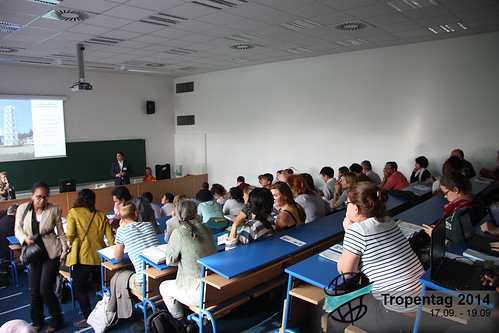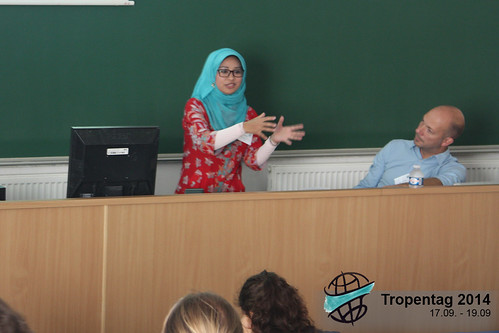plenary session
Were there unmet expectations?
Fri, 09/19/2014 - 19:53 — Ruffy Rodrigo
While sitting at parallel sessions on natural resource management, I find it really interesting to watch people come and go. I have observed people leave after one presentation and another group of people come in. I can’t help but wonder why? Were there any expectation that the presentations didn’t meet? Were the presenters boring?
 (Continue...)
(Continue...)
 (Continue...)
(Continue...)
The People, the State and the Forest – Java
Fri, 09/19/2014 - 08:00 — Ruffy Rodrigo
Who should manage the forest, the people or the forest corporation? In Indonesia, State Forest Corporation (SFC) has been granted by the authority to manage the teak forest on Java Island. There is currently an emerging conflict about the usage of teak forest between the corporation and the villagers. Over 30 years, the teak forest in Java has been controlled by the SFC and the only way that the community can have access is through the Collaborative Forest Management Program (CFMP). “The general impression is nothing really changed in Java” - Wiene Andriyana told the audience during the parallel plenary sessions on natural resources management.
 (Continue...)
(Continue...)
 (Continue...)
(Continue...)
Agriculture and crashing jumbo jets - the first day of Tropentag
Thu, 10/06/2011 - 11:37 — De-Registered User
Looking back on the first day of Tropentag 2011
A ‘hub of discussion’, ‘the most important international conference for the development oriented scientific community’ or just a networking event… with more than 1000 participants from all over the world Tropentag is everything but boring. Looking back on the first day.
‘There are a billion people that are currently hungry. We’ve never had that number of hungry-stricken in the world before. If we’re going to feed the world by 2050 we need to increase food production by something as 70 to 100 percent. The food price spikes are going to recur and food prices will stay high.’ This statement of Sir Gordon Conway (Imperial College) during the plenary speeches on the first day of the Tropentag, will be leading during the whole conference in Bonn. These are the facts. How can research make a contribution to solve this problem?
Questions
As Claudia Mueller (University of Bonn) argued in the opening session of the Tropentag, research on ‘development of the margin’ is needed and should be a guiding principle for all researchers. ‘We will only be successful if we manage to improve the hunger situation for the marginalized in development.’ She raised questions such as how to balance development in favorable and marginal environments? Should marginalized people and communities become key players in an increasingly globalized resource use, and if so, how?




